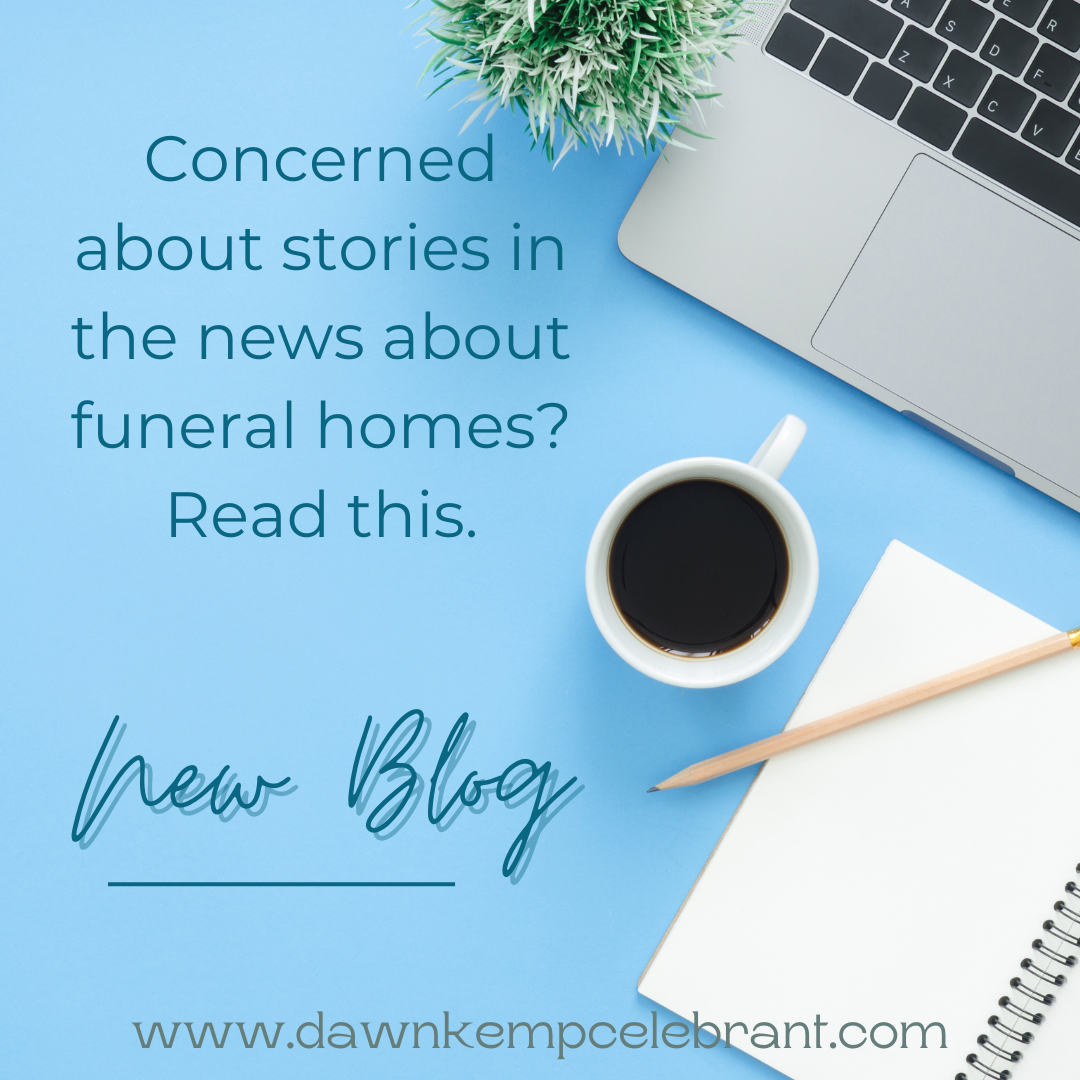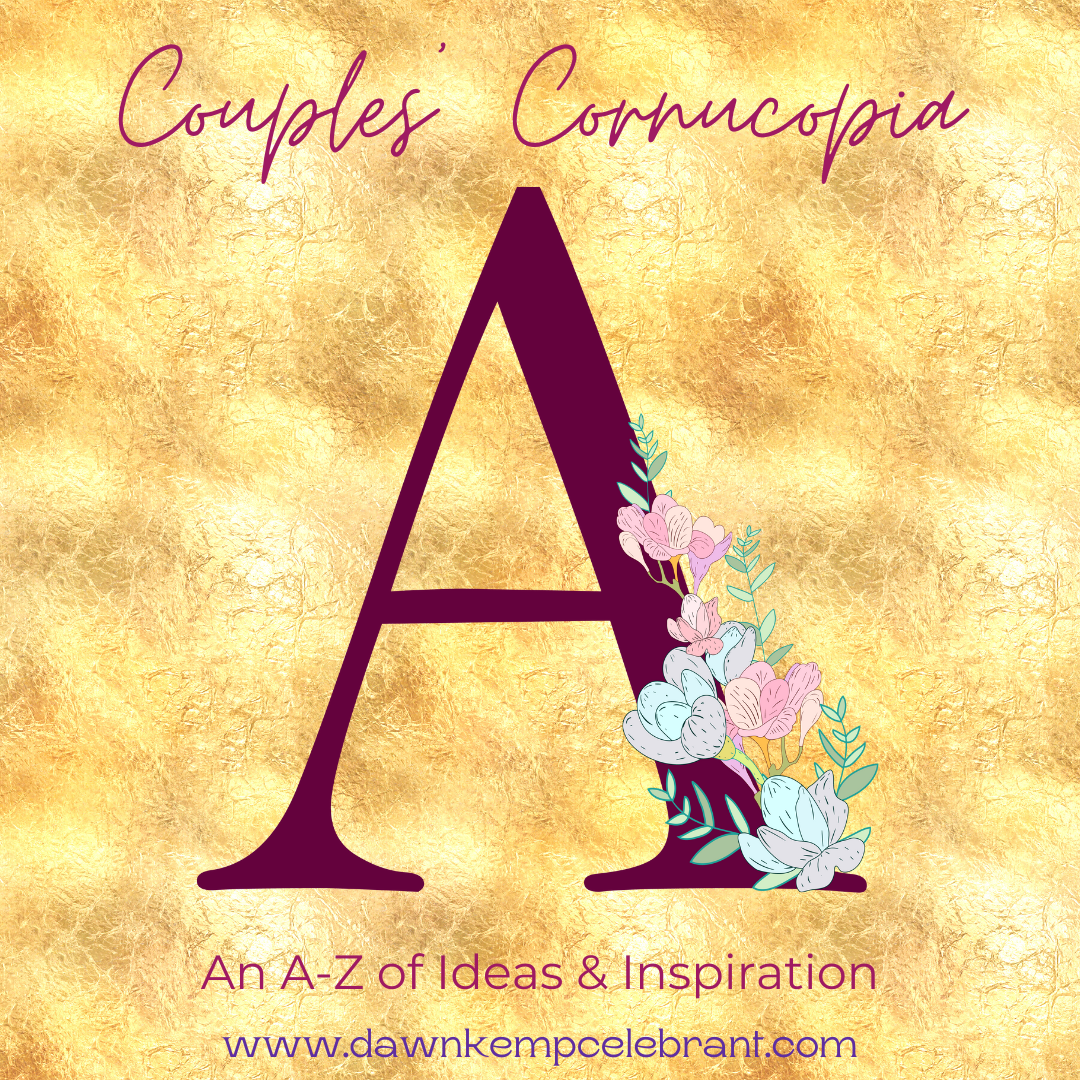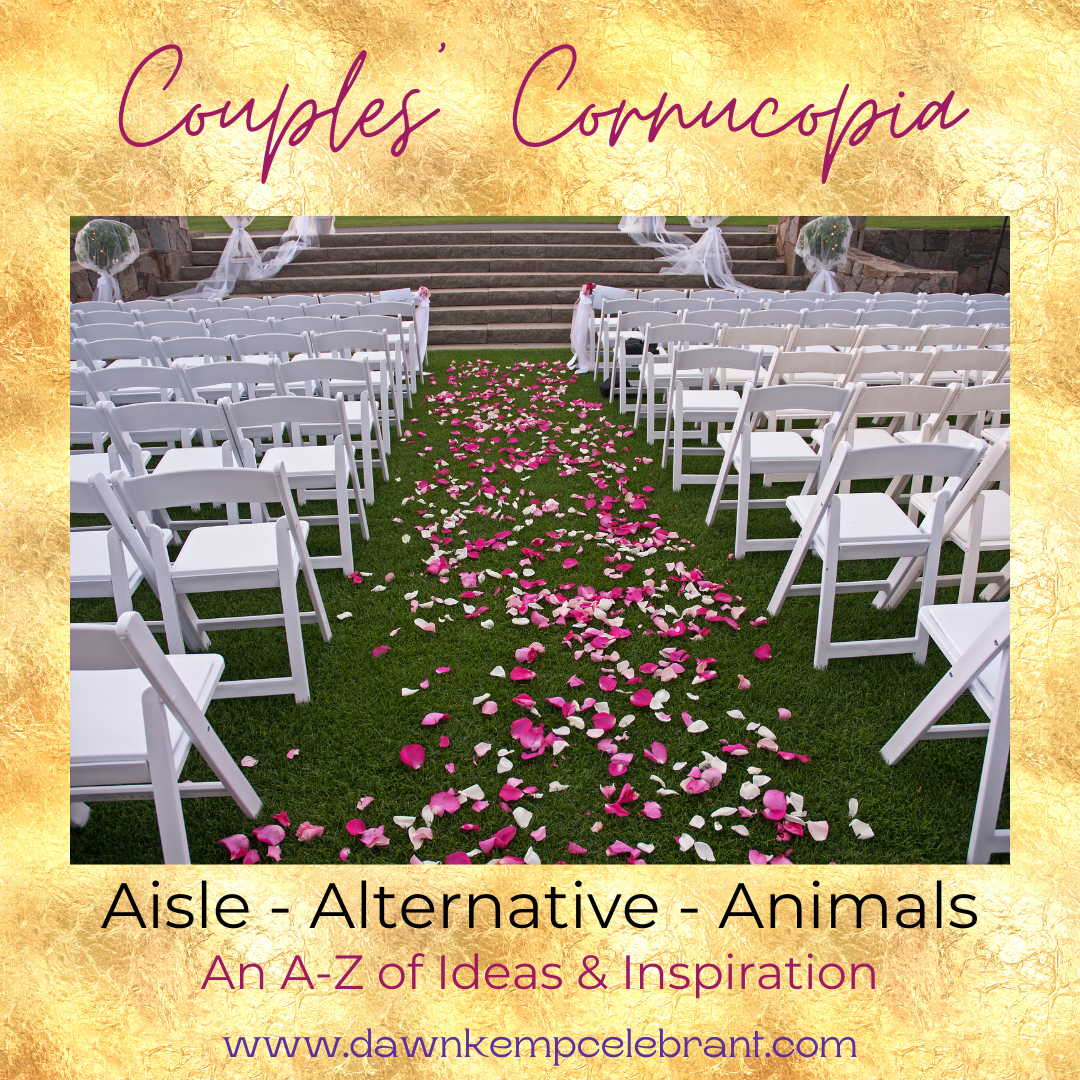|
Every so often, a horror story reaches us regarding malpractice in a funeral home. Fortunately, these instances are rare, and most funeral directors and staff in the sector are caring and conscientious, and set themselves the highest standards.
A recent case in the news about a Hull funeral home has understandably broken the hearts of the dozens of families affected, and shaken the trust of the public in 'undertakers' and 'funeral parlours', as the media sometimes still refers to them. There is a fear of what might go on behind closed doors in the care of the deceased, and a worry about corner cutting motivated by profit. I understand the unease, through personal experience. I was once approached direct by a family to lead the service for their person. It was only when I met with them I discovered that the 'funeral director' was a known for offering a service that refelcted the very low fees. The family expressed concerns that they had not been treated well and prevented from seeing their loved one, and in my opinion, the funeral team at the service were shambolic, acting with less dignity than one would have hoped for. It was a sad sight. I stepped in to act as funeral director as the company didn't bother to send one! This was *not* the company currently making headlines, but similar operators do exist who fall far short of expected standards. How can this be? Most people are shocked to discover how little regulation there is in the funeral sector, and that it's relatively easy to set up as a funeral director (if you can afford to). So, here are a few things you should know, before you entrust your person, or yourself, to the care of a funeral home. Regulation in the Funeral Sector in England – An Overview This short guide looks at funeral homes only, and not funeral plan providers, crematoria, or online direct cremation companies. All information is given in good faith, and is indicative, not exhaustive. Some examples from Lincolnshire are used for illustration and clarification. A. What You Need to Know
B. Voluntary Trade Organisations & Codes of Practise There are two UK associations that set out a code of conduct for professional and ethical standards for funeral directors. These include guidance on best practice for care of the deceased, confidentiality and data protection, and handling of complaints.
The two bodies are: NAFD – National Association of Funeral Directors. Both independent funeral homes and corporate chains may be members. Look for the symbol of a gold lion on a blue background on funeral home literature. You can find the code here: https://www.nafd.org.uk/standards/the-funeral-director-code/ SAIF – National Society of Allied and Independent Funeral Directors. SAIF is, as the name suggests, for independently-run funeral homes. The logo is a pale blue oval on darker blue. You can find the code here: https://saif.org.uk/wp-content/uploads/2020/10/Code-of-Practice-Oct-2020-with-Logo.pdf When visiting a website or funeral home, look for a trade logo; and if there is none, ask why they have chosen not to join a trade body, if they have a code of practise, and what their feedback and complaints process is. Read reviews on the website, and better still, look at Google or Social Media platforms, where the funeral home cannot select which reviews appear. If reviews are turned off, this should be a red flag. Remember to leave a review after to help others comparing funeral homes, and credit good standards. If there are any concerns, report them to the trade body – assuming they’re in one - or in extreme circumstances, the police. C. Training Funeral directors do not have to have any training to set up a funeral home, or work as a funeral director. Some funeral homes will insist their funeral directors are trained to recognised standards, with accredited qualifications from the NAFD, and/or BIFD (the British Institute of Funeral Directors). Don’t assume that a logo on display means some/all funeral directors at the home are trained. For recognised qualifications:
Some funeral homes, whether group or family-owned, will have their own training systems. Others will have no trained staff at all. Enquire generally about how long the staff have worked there and what training they did, and if you’re not reassured, go elsewhere. D. Chains and Independents There are national chains (like Cooperative Funeralcare and Dignity), and regional chains (e.g. Lincolnshire Co-op and Beverley Funerals). Companies like these are usually members of the NAFD. Note that some still retain a prior name if a business that was once independent/family owned, has since been taken over (e.g. the once family-owned Kettle funeral home branches in Lincolnshire are now run by chains – by Cooperative Funeralcare in Grimsby, and Dignity in Brigg). Corporate branding colours and the footer of the website and documentation should indicate if the funeral home is part of a group. Independent or family-owned businesses may be members of the NAFD and/or SAIF, or neither. There are differences in the ways corporates and independents operate, in terms of their business model (e.g. if commission is offered, or there are sales targets to meet) and the type of care and personal service offered (e.g. if you are assigned a funeral director who will be your continuous point of contact). Standards are more likely to be comparable between branches with chains due to the management structure, but this does not indicate they are higher than those of independents. It is up to you to decide which is right for you. Chains benefit from economies of scale which may be reflected in an extensive product range, and fleet and staffing availability. Independents may be more affordable, lacking so many overheads, and offer a more personal service, with strong ties to, and understanding of, the local community. Bear in mind what was once your family’s go-to local funeral home may be staffed and operated differently if it is a long time since your family last used it. E. CMA Legal Orders As a result of the Competitions and Markets Authority survey of the funeral sector, and report on areas of concern to government in 2020, the following orders are now part of the legal requirement for funeral homes: 1. Funeral directors must display a Standardised Price List (including attended and non-attended funerals), Additional Options (such as collection of ashes and embalming) and up-to-date typical fees for local crematoria and burials. Look for these online and displayed in the window of the premises. This is so you can see total costs, and compare providers. You may compare and shop around to choose the funeral home and service that is right for you. Some categories may say POA or offer a price range. If you need help, ask for a printed itemised quote. Better still, call or pay a visit to a few funeral homes, and see if you feel comfortable with how they receive you and answer your questions. You may need to make an appointment, rather than drop in. 2. Funeral directors must display their terms of business (including payment options and late charges). This should be made clear to you before you enter into any contract. Some funeral homes require payment upfront; others will take a deposit. This helps you budget, and be aware of how much and when the payment of deposit and balance are due. Be sure to ask for this in writing, or by email, if it is not readily offered. 3. Funeral directors should not solicit for business (e.g. coroner contracts), offer incentives for referrals (e.g. from care homes), and must disclose interests (e.g. donations) and any conflict thereof. This is to deter profiteering through bribery and breach of trust. You may select your chosen funeral director yourself (and any related providers, such as celebrants and florists), and your choice should be informed, and free from bias or influence. For brevity, this piece has just scratched the surface, so if you have further questions, get in touch and I can answer your general queries or direct you to a trusted Grimsby funeral home or funeral director if you'd like to speak to one. If you'd like a pdf copy of this, email me at [email protected] © 2024 Dawn Kemp Celebrant www.dawnkempcelebrant.com
0 Comments
3 Ideas – 3 Venues – 3 Suppliers Each week the A-Z taster presents ideas for your wedding, civil partnership or vow renewal. Mini blogs of just 200 words introduce you to each idea. Click ‘Contact’ if you want to know more. Up to 3 Venues and 3 Suppliers are featured each blog. As far as possible, these are local Lincolnshire businesses. A mix of established and new, large and small, traditional and alternative. To be fair, each is presented without comment (unless an explanation is needed), and with a link to social media or the website so you can find out more. Ideas
Aisle Walking down the aisle towards the one you love. Aww, whose heart doesn’t skip a beat? Traditionally, with bride and groom, the groom stands at the top of the aisle, waiting for the moment he can turn and catch the first glimpse of his beloved as she makes her entrance. If you want to break with tradition, especially for equal marriages and civil partnerships, you might mix it up. Both of you could come in together, hand-in-hand, or walk from different doors or corners of the room and come together at the top of the aisle. I say walk. Dance if you like! Enter on a motorbike, Space Hopper, or be carried in Cleopatra style and unrolled from a rug! It’s your big entrance – do it your way! Have an escort if you’d like – a parent or even a pet. Whether you’re marrying inside in a function suite, in a barn or tipi, or outdoors in woodland or on the beach, there are many ways to reflect your style in the aisle (that rhymes!). Red or white carpet, a custom printed runner, rugs or skins, or barefoot on sand – what’s your preference? Lined with candles, vases of flowers, leaves or grasses, scattered petals, trees or rustic logs, shells, rocks or stones, perhaps with an archway under which you can pause to relish the moment. Alternative Ceremonies Alternative ceremonies are for couples who break the mould – and they remove any traditional elements that aren’t ‘you’, such as being ‘given away’ or wearing a white dress, because that’s expected. Wear a black dress or a trouser suit if that’s what makes you feel great. It’s not only about style though. It’s a celebration of who you are and is a reflection of your personality, and beliefs (if any). Alt ceremony weddings are sometimes called an un-wedding, non-wedding or anti wedding to distinguish them from convention. They are often described as quirky, unconventional or bold. They may be designed around your heritage, style or lifestyle – pagan, steampunk, gothic, boho, vintage, rock ‘n’ roll; or themed by your interests and inspiration – rainbows, dinosaurs, film noir, Harry Potter, Alice in Wonderland, The Little Mermaid etc. Alternative venues and locations are popular – mystical woodlands, majestic coastlines, atmospheric caves, the giraffe house at a safari park, a brewery, a hot air balloon, or sky dive if you’re brave! It’s about understanding what is authentic and true to you, and what will make your day truly your own. Then going for it! Don’t want a big fuss? Elope! Do it your way. Animals Love animals? How about including them in your day, actually or symbolically? If you love horses, you could arrive by horse-drawn carriage or on horseback. Some companies provide llamas, alpacas or goats for your special day. How about your pet? Check first with your venue or location, and consider their personality, to see if your pet could attend too. Dogs are popular, and look amazing dressed in bow ties and little suits. Your pet pooch could take on a traditional role - ring bearer, best dog, dog of honour or flower girl. If you have a pet sitter for the day, they might bring the pet along for a short while so they can be part of the day. Your celebrant ceremony certificate could have space for a witness paw print (scanned in digitally if it’s not practical on the day). Your animal theme may be reflected in the wedding stationery or cake design. How about a 3-tiered cake with layers of leopard skin, snake print and zebra stripes? You could include your pets in your vows too, promising to take care of them together, or to love your partner *almost* as much as them! Links: Venues - A Remember – a celebrant-led ceremony can take place at any venue; it doesn’t have to be licensed for civil weddings or partnerships. Here are some venues for a Lincolnshire wedding. Abbey Farm Weddings https://abbeyfarmweddings.co.uk/ https://www.facebook.com/abbeyfarmweddings Abby's Bistro https://www.abbysbistro.co.uk/upstairs-abbys/celebration/ https://www.facebook.com/abbysupstairs/ Ashbourne Hotel https://www.oakridgehotels.co.uk/ashbourne-hotel/ https://en-gb.facebook.com/AshbourneHotel/ Suppliers - A A Booth and Beyond https://en-gb.facebook.com/aboothandbeyondphotoboothhire/ Amy Lauren Weddings https://www.amylaurenweddings.co.uk/ https://www.instagram.com/amylaurenweddings/?hl=en Anna Belle Designs https://www.instagram.com/anna.belle.designs/?hl=en-gb https://en-gb.facebook.com/annabelledesigns/ |
From DawnWelcome to the blog. Contact me if there's anything you'd like me to cover about celebrants, ceremonies (including weddings, namings, funerals) or related topics such a s vow writing, funeral planning etc. Archives
July 2024
Categories
All
|




 RSS Feed
RSS Feed
